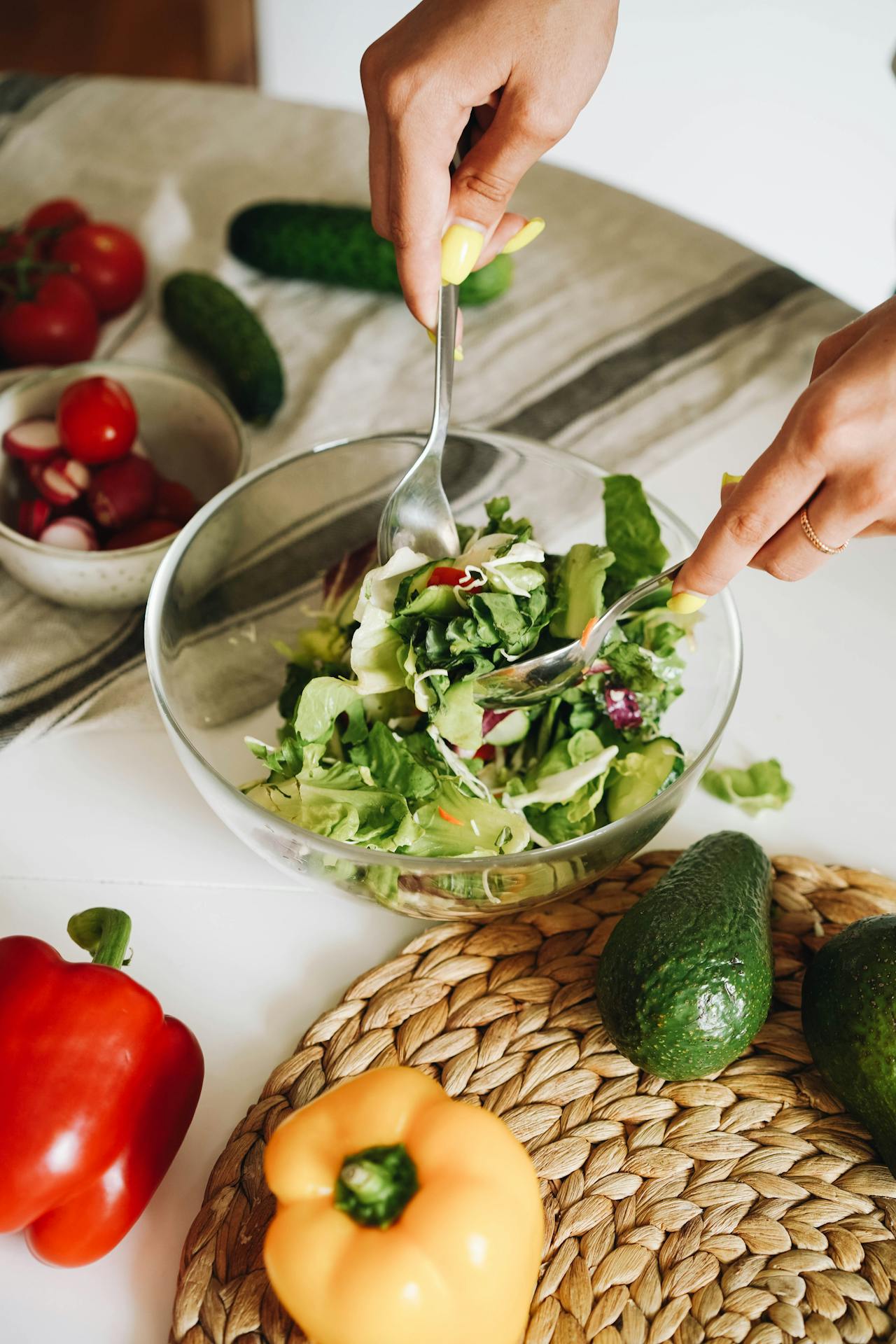Gout, a painful form of arthritis, was once associated with lavishness, excess, and overindulgence. The disease is what many think of when they think of Henry VIII (after the six wives, of course). The Tudor king was famous for suffering from gout, which was likely caused by his meat-heavy diet, excessive alcohol consumption, and sedentary lifestyle.
But gout is not a disease of the past. Today, it still impacts millions all over the world, including more than 8 million Americans. Stereotypes aside, there are many reasons why people get gout. It can be genetic, for example, or caused by malnutrition—a condition that the food industry’s over-reliance on ultra-processed foods is making more common.
 Cottonbro Studio | Pexels
Cottonbro Studio | Pexels
Back in the 1500s, physicians tried to treat Henry VIII’s gout with remedies of fox oil and gold elixirs, but these days, studies suggest a combination of medication and lifestyle changes—including switching to a plant-forward, Mediterranean-style diet—are far more likely to be effective. Here’s what the research says.
What is gout and how do you get it?
Gout is caused by a buildup of uric acid, which is a waste product created by the body when it breaks down purines, a type of natural organic compound. Purines are found in a number of different foods and drinks, including alcohol, fruits, vegetables, certain seafood, meats, and organ meats. Some, like fruits and vegetables, contain moderate levels of purines, while others, like organ meats, contain very high levels of purines.
When a person consistently consumes a food or drink that is very high in purines, like liver, beef, or venison, for example, their body produces high amounts of uric acid. This can crystallize around the joints, leading to gout. Symptoms include severe pain, swelling, and redness, often in the big toe, but it can also impact ankles, knees, wrists, fingers, and elbows.
 Pexels
Pexels
Consistently eating foods that are high in purines can increase the risk of gout, as does drinking excessive amounts of alcohol and sugary drinks. A lack of exercise can also contribute to gout, as can chronic conditions like high blood pressure and diabetes. A genetic condition called hyperuricemia, which is characterized by high levels of uric acid, can also increase the risk of gout.
A high intake of ultra-processed foods is also linked with a higher risk of gout, especially for those who may be genetically predisposed to the condition. One study published in the journal Rheumatology Advisor in January 2024 suggested that replacing 20 percent of ultra-processed foods, like fizzy drinks, potato chips, candy, and processed meats, with minimally processed foods could reduce the risk of gout by 13 percent.
What are the best foods to eat to stop gout?
There are many ways to treat and manage gout. Anti-inflammatory medications and pain relief, for example, are vital for helping sufferers with the disease. Reducing stress and participating in regular light exercise is also advised. However, research also suggests that diet changes can help significantly.
In November 2024, researchers presented a new study involving 33 participants on plant-forward diets and gout at the Gout Hyperuricemia and Crystal-Associated Disease Network’s annual research symposium in Virginia. They concluded that a diet rich in plant-based whole foods, like fruits, vegetables, beans, whole grains, and legumes, lowered levels of uric acid and improved symptoms for gout sufferers.
 Pexels
Pexels
“Additionally, the diet reduces gout-related pain and disease activity, promotes substantial weight loss, decreases weight circumference, and improves LDL cholesterol levels, and thus decreases [cardiovascular disease] risk in these patients,” said Anna Kretova, RD, of the Reade Rehabilitation and Rheumatology Center in Amsterdam, the Netherlands, who presented the study.
She added that many participants were pleasantly surprised at how easy the diet was to follow. “A lot of participants changed their diet permanently for the better,” she said. “Not everyone became [entirely] plant-based, but they became much more plant-based than they expected from themselves.”
The study is not the first to link a plant-based diet with an improvement in gout symptoms. Last year, another study analyzed data from more than 7800 people taken from the sixth wave of the China Health and Nutrition Survey and suggested that a plant-forward diet high in cereal, tuber starches, and vegetables led to low uric acid levels, while a diet high in meat and fish resulted in higher levels.
 Pexels
Pexels
And yet another study involving data from nearly 14,000 people, conducted at Fu-Jen Catholic University in Taiwan in 2019, suggested that people who follow a vegetarian and vegan lifestyle have a lower risk of gout than those who eat meat.
“We found a significant difference in uric acid concentration between lacto-ovo vegetarians and non-vegetarians in both men and women,” the authors stated. “A vegetarian diet, compared with a non-vegetarian diet, was consistently associated with lower risk of gout.”


